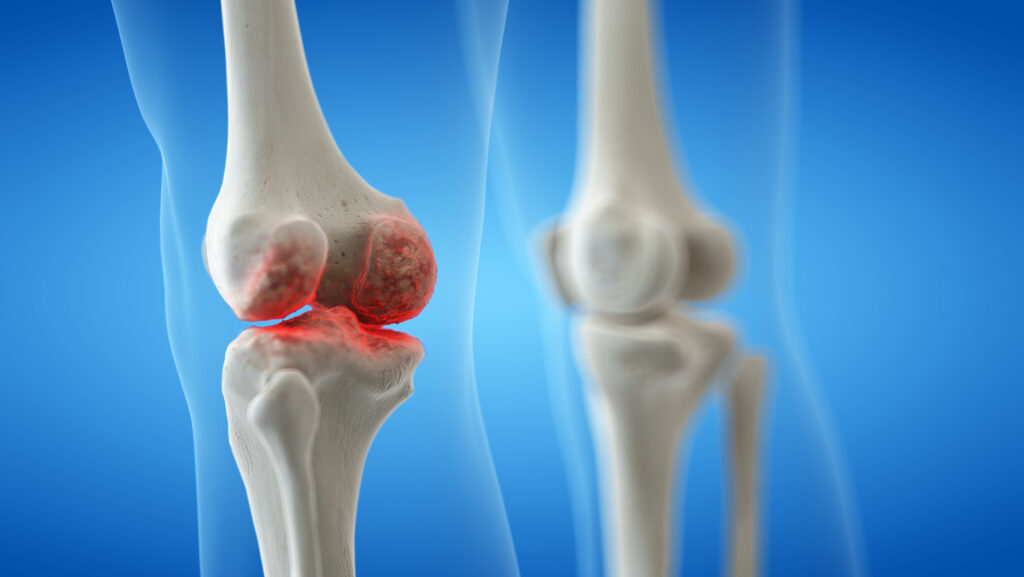Search Results
Showing Results for systemic sclerosis

touchIMMUNOLOGY coverage of EULAR 2025: The 2025 European Alliance of Associations for Rheumatology (EULAR) Congress brought together leading rheumatologists, immunologists, and allied healthcare professionals from across Europe and beyond. Running from June 11–14 in Barcelona, the conference showcased the latest advances in immune-mediated ...

As part of our EULAR 2025 coverage, Dr Dinesh Khanna discusses early findings from the Breakfree-1 trial investigating BMS-986353, a next-generation CD19 CAR T-cell therapy, in severe, treatment-refractory autoimmune diseases. In this exclusive interview, Dr Khanna explores the rationale, mechanism, and encouraging early results in systemic sclerosis, highlighting robust CAR T expansion, immune reset, and meaningful clinical improvements in skin and lung outcomes.

Interstitial lung disease (ILD) is a common and potentially fatal complication of systemic autoimmune rheumatic diseases (SARDs), such as rheumatoid arthritis (RA) and systemic sclerosis (SSc). ILD may be the first sign of disease or develop later, often with variable clinical courses. Early detection is critical, as delayed diagnosis contributes to poor outcomes. In response, the 2023 American College of Rheumatology (ACR) guidelines emphasize routine screening and risk-based strategies to improve identification and management of SARD-associated ILD (SARD-ILD).

Physician burnout is at a critical point. In this episode, Nicky speaks with Dr Alfred Atanda about why so many physicians are burning out and what can be done to change the trend. From personal experience to system-wide solutions, Dr Atanda shares valuable insights on improving physician well-being and building a more effective healthcare culture.

In this episode, we explore the future of continuing medical education (CME) with the team behind touchIME. Hannah Fisher and Matthew Goodwin share insights into global and US trends, the importance of patient inclusivity and how educational outcomes are evolving to better measure the direct impact of learning on clinical practice and patient care.

To gain expert insight into the most impactful developments of the past year and the trends set to shape the next, we reached out to our esteemed expert faculty. From advances in targeted therapies to the integration of AI and steps towards precision medicine, here’s what our experts had to say.

There is much excitement about the deployment of artificial intelligence (AI) in healthcare, and the musculoskeletal field is no exception. In this article, we introduce some of the latest developments relating to osteoarthritis (OA), osteoporosis, rheumatoid arthritis (RA) (as an ...

The global burden of disease is heavily impacted by the increased prevalence of chronic inflammatory rheumatic diseases (CIRDs [rheumatoid arthritis (RA), spondyloarthritis (SpA), connective tissue diseases (CTDs) crystal arthropathies and polyarticular osteoarthritis (OA)]), which are prevalent chronic non-communicable diseases associated ...

Systemic lupus erythematosus (SLE) predominantly affects females and is characterized by multisystem involvement.1,2 Despite advancements in therapeutics, patients with SLE still experience poor health-related quality of life (HRQoL).3 Systemic sclerosis (SSc) is characterized by vasculopathy and fibrosis of the skin ...

touchIMMUNOLOGY spoke with editorial board member Jérôme Avouac (Hôpital Cochin, Paris, France) to discuss his highlights from the European Alliance of Associations for Rheumatology (EULAR) annual meeting in the field of rheumatoid arthritis, and his presentation on ...

The preamble of the World Health Organization's constitution defines health as “a state of complete physical, mental and social wellbeing, and not merely the absence of disease or infirmity".1 An optimal state of health is considered a fundamental human right. ...

Systemic rheumatic diseases (RDs) commonly arise during a woman’s reproductive years and may have implications for family planning and pregnancy. Among the RDs, systemic lupus erythematosus (SLE) and antiphospholipid syndrome (APS) are classically associated with an increased risk of ...

Article highlights Treatment of rheumatoid arthritis remains a challenge, and new interleukin (IL) 6 inhibitors deserve special attention. IL-6 provides pleiotropic effects not only on the pathogenesis of rheumatoid arthritis but also on its comorbidities. The humanized monoclonal antibody olokizumab has ...

Many environmental factors have been associated with the development of autoimmunity.1 Infections, for example, can cause reactive arthritis by triggering a (genetically) predisposed immune system.2 Smoking, in a similar, but arguably different, way, can trigger the production of autoantibodies by ...
Latest articles videos and clinical updates - straight to your inbox
Log into your Touch Account
Earn and track your CME credits on the go, save articles for later, and follow the latest congress coverage.
Register now for FREE Access
Register for free to hear about the latest expert-led education, peer-reviewed articles, conference highlights, and innovative CME activities.
Sign up with an Email
Or use a Social Account.
This Functionality is for
Members Only
Explore the latest in medical education and stay current in your field. Create a free account to track your learning.





